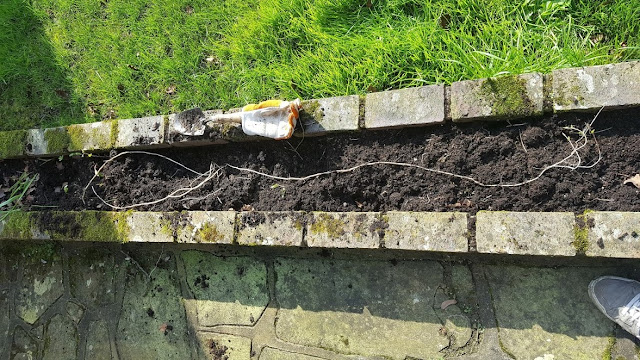 |
| How to control bindweed - Convolvulus arvensis |
The common name bindweed is unfortunately used for a number of plant, but for the purpose of this article (which relates to the common garden weed - Convolvulus arvensis) the more accurate common name of 'Field Bindweed' will be used.
Closely related to the morning glory family, the field bindweed is a native to Europe and Asia. However, as pretty as its blooms are, the field bindweed is also a pernicious garden weed which if left unmanaged can easily swamp a suburban border and contaminate lawns. It is also notorious for out-competing ornamental species for sunlight, moisture and nutrients and is one of the most serious of agricultural weeds in the temperate regions of the world!
 |
| How to control bindweed - Convolvulus arvensis |
Organic control of bindweed
It is possible to manage bindweed by persistent digging and hoeing. Over time the plants will weaken and over a couple of years of relentless pursuit it is possible to wear out the root systems. Just remember that dormant seeds will stay viable in the ground for decades and so consider organic control of bindweed as an almost permanent feature .
On allotments, one popular method is to cover the area in old carpet for a year or so as the lack of sunlight to the soils effectively killing off most vegetation.
Chemical control of bindweed
The chemical of choice is Glyphosate. This is a non-selective weed killer which will affect any plant when applied to green growth, so be careful what you spray and avoid windy conditions. The reason why it is the chemical of choice is because it travels throughout the plant's vascular system killing both the top growth foliage and the roots. It also deactivates on contact with soil so that you can replant without the risk of damaging newly planted or sown plants.
In text image credit - Bouba - Convolvulus arvensis, 28 juin 2004, Jardin des Plantes de Paris (fr:Jardin des Plantes de Paris) https://creativecommons.org/licenses/by-sa/3.0/deed.en
For related articles click onto the following links:
HOW TO CONTROL BINDWEED - Convolvulus arvensis
HOW TO GROW CONVOLVULUS SABATIUS
WHAT IS BINDWEED?







No comments:
Post a Comment